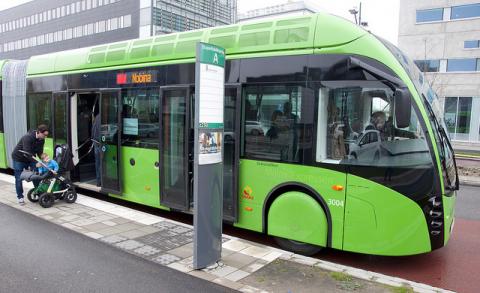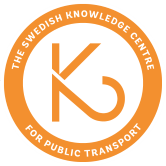Article highlighted
Introducing renewable fuels in public transport

The transition to renewable fuels in the Swedish bus sector has been rapid and in 2020 over 90 percent of all bus kilometers were run on renewable fuels. However, the proportion and type of renewable fuel differs between the country’s different regions.
"The environmental requirements that have governed the public procurement of bus traffic have been of great importance for the rapid introduction of renewable fuels in Sweden", says Malin Aldenius.
When public procurement is used in Swedish public transport, the environmental requirements are often set as technical demands– either functional requirements for a certain goal to be achieved, or specific requirements regarding the technology or fuel. Functional requirements place much of the responsibility on the procured operator and are considered the most cost-effective and flexible way to transition. However, it has been shown that procurement with functional requirements has led to the sole use of the most commercially viable renewable fuel – biodiesel.
"When regions have strived to procure bus traffic that runs on a renewable fuel other than biodiesel, there has typically been a need for specific requirements in the procurement documentation", Malin Aldenius explains.
Due to the great uncertainty surrounding the division of responsibilities and the development of new technology, it can be difficult to set good requirements in the procurements of new fuels and technologies, such as electric buses. In these cases, the Swedish public transport authorities have often used a test project outside normal traffic. In addition to introducing biogas as a fuel through specific requirements in procured traffic, it has also been introduced in regions with publicly operated bus services which has allowed for a gradual transition without procurement processes.
"The type of environmental requirements set in the procurement of bus traffic depends on the region’s goals and conditions. Particularly specific fuel requirements can often be linked to a broader strategy, where goals other than increased share of renewable fuels also come into play. Such goals may be to reduce air pollution and noise, or to help create a market for a new fuel", says Malin Aldenius.
Malin believes that it is important that the environmental requirements in public procurement of bus traffic continue to develop.
"We can now see an increased focus on energy efficiency and a continued electrification of buses in Sweden", says Malin Aldenius.
Malin Aldenius has defended her thesis Steering green buses: The opportunities and challenges of introducing renewable fuel in public transport in October this year.
Contact
Malin Aldenius, PhD student at the Division of Environmental and Energy Systems Studies, LTH, Lund University
